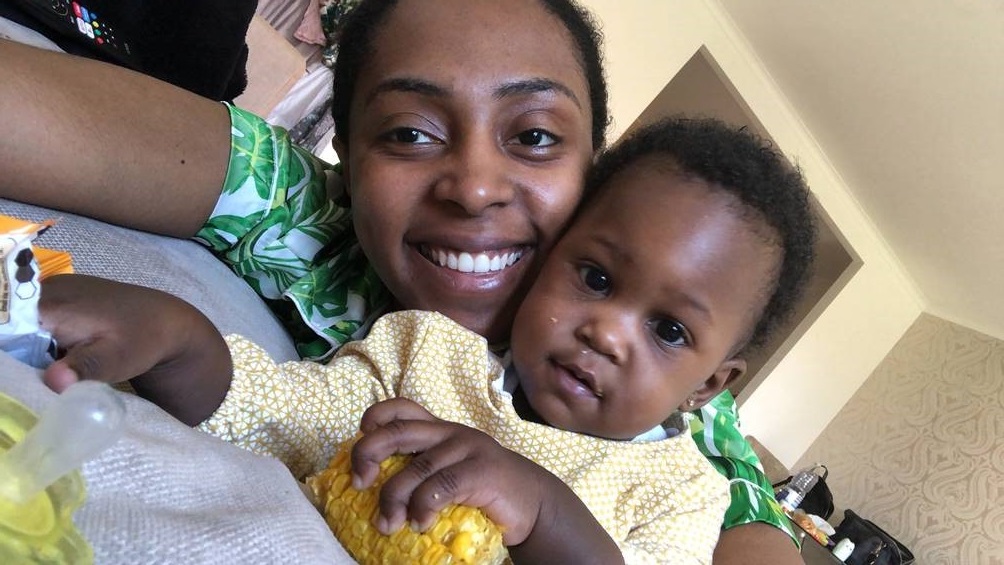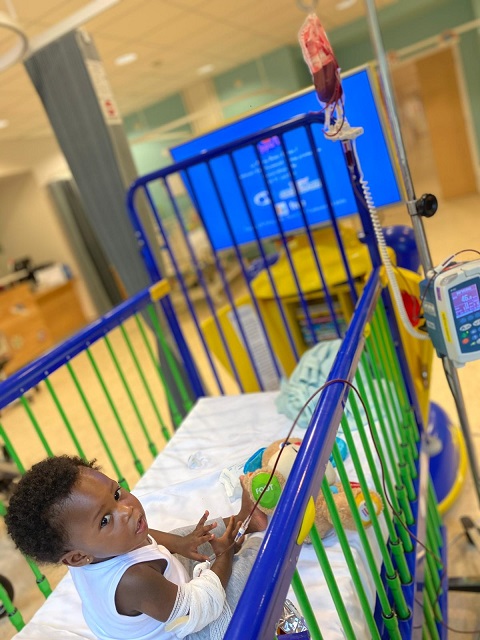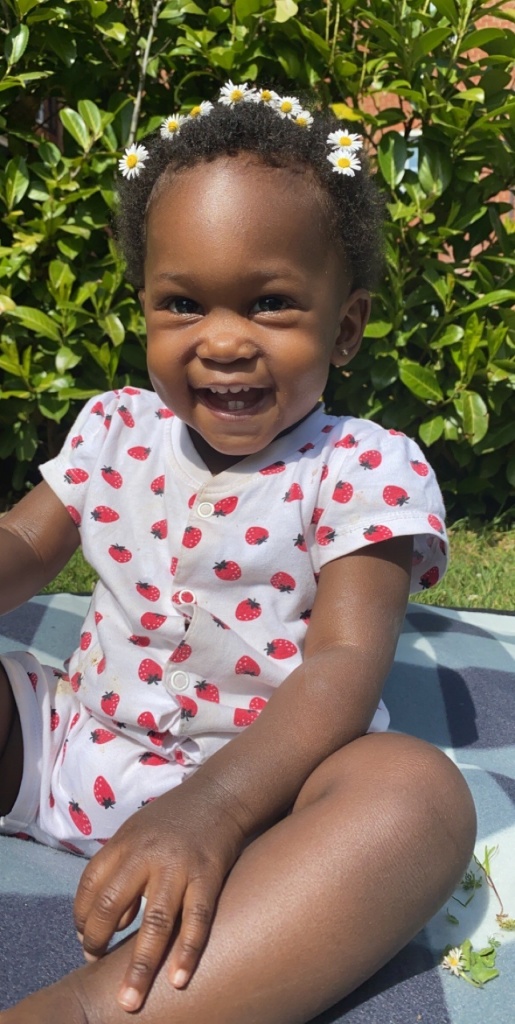


The mum of a toddler who needs regular blood transfusions to stay alive is urging more black people to donate to help patients like her daughter who need ethnically matched blood to get the best possible start in life.
Layla Lawson’s 17-month old daughter Suki has sickle cell disorder, an inherited blood disorder that is more common in black people. It can cause organ failure, stroke or loss of vision, and can be fatal.
It is estimated that fewer than one in 10 of the 4,000 children and young people with sickle cell in England are on the transfusion programme, making Suki one of the youngest to depend on life-saving blood donations. Other children with the disorder still need blood in emergency situations.
Many adults rely on frequent transfusions to reduce the risks from sickle cell but children are typically able to manage the disorder with medication. They are more likely to need blood for treatment as they become older, as the risk of serious and life-threatening complications increases with age.

Black people are more likely to have the rare blood subtype that many black sickle cell patients need, but there is an urgent shortage of black donors. This makes it harder to find the best matched blood for black people, putting them at greater risk of potentially life-threatening transfusion reactions.
NHS Blood and Transplant and the Sickle Cell Society are sharing Suki’s story to demonstrate the urgent need for more black people to donate blood to give children like Suki the best possible start in life.
Layla, 26, from north London, said: “By the time she was nine months old Suki had already suffered two terrifying sickle cell crises.
“One of the times it was in her spleen. By the time we got to the hospital she could barely sit up. She was too pale. The doctors needed to get blood into her quickly to save her life. I remember sitting there, just watching her breathe.
“After the second crisis the doctors put her on monthly blood transfusions. Without them her organs could shut down. Donated blood is literally the thing that keeps us together.
“As her veins are so tiny it can be near impossible to get the IV line in. But once she has that good blood in her system, she’s a different child. After 20 minutes the colour is returning to her face and she wants to be off the bed and running around.
“Suki has tough times with her sickle cell and it’s terrible to watch your child in pain. But the rest of the time she’s just a normal, happy little girl who loves Peppa Pig. That is all thanks to blood donors, and I can’t put into words how thankful I am to everyone who donates.”
Layla works as an engagement officer with the Sickle Cell Society. She joined the charity soon after Suki was born to help raise awareness of the disorder and she works with young people and in schools.
“Although I carry the sickle cell trait, before Suki I had no idea of the importance of ethnically matched blood for sickle cell patients,” said Layla.
“Every day is a worry when you have a child with sickle cell. If more black people gave blood, I would have less worry about transfusions exposing Suki to other complications.
“To people from a black background I just want to say ‘please, donate blood’. You will help secure the future of children and adults with sickle cell who depend on blood – you will save lives.”
Sickle cell affects the red blood cells that carry oxygen around the body. These cells form into a sickle or crescent shape and can block blood vessels, causing agonising pain and creating a risk of life-threatening complications. This is known as a sickle cell crisis.
Many of the 14,000 sickle cell patients in England need regular blood transfusions or exchanges to help prevent or relieve the painful symptoms and complications. Others rely on blood for emergency treatment if they experience a crisis.
Without matching blood, patients risk complications caused by their transfusions and currently sickle cell patients are the most vulnerable to this due to the shortage of black donors.
While the number of black blood donors has grown steadily in recent years, the urgent shortage remains. There are currently 12,633 black and mixed black donors, which is around 1.5 percent of the donor base.
John James OBE, Chief Executive, Sickle Cell Society said: “Blood donors are vital to saving the lives of many people living with sickle cell. We are working hard to ensure we see an increase of black heritage blood donors signing up to make a difference.”
Nadine Eaton, Head of Blood Donor Recruitment for NHS Blood and Transplant said: “More and more black people are saving lives by donating blood. But the NHS urgently needs more black donors so patients like Suki can receive the best matched blood possible.
“Blood donation is quick, easy and safe. We urge people of black heritage to do something amazing and register as donors. You will save lives.”
Since the covid-19 outbreak extra safety measures have been introduced across all blood donation sessions. On arrival donors have their temperature taken and are triaged to ensure only those with no risk factors can enter.
Hand gels and hand washing facilities are available inside donation venues, donors are spaced apart and staffs are doing extra cleaning. Staff and donors are required to wear face coverings.
Become a blood donor. Register today and book and appointment by calling 0300 123 23 23, downloading the GiveBloodNHS app, or visiting blood.co.uk
Kindly follow us on twitter:@AfricanVoice2












